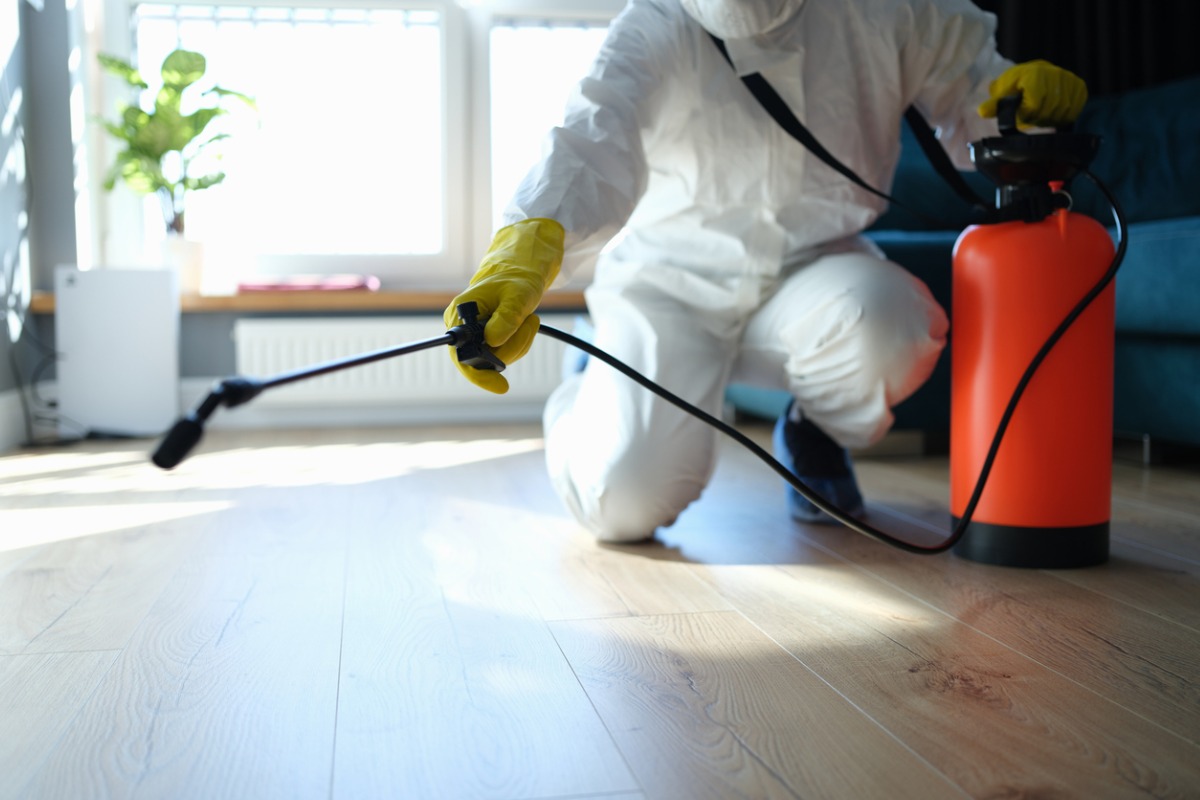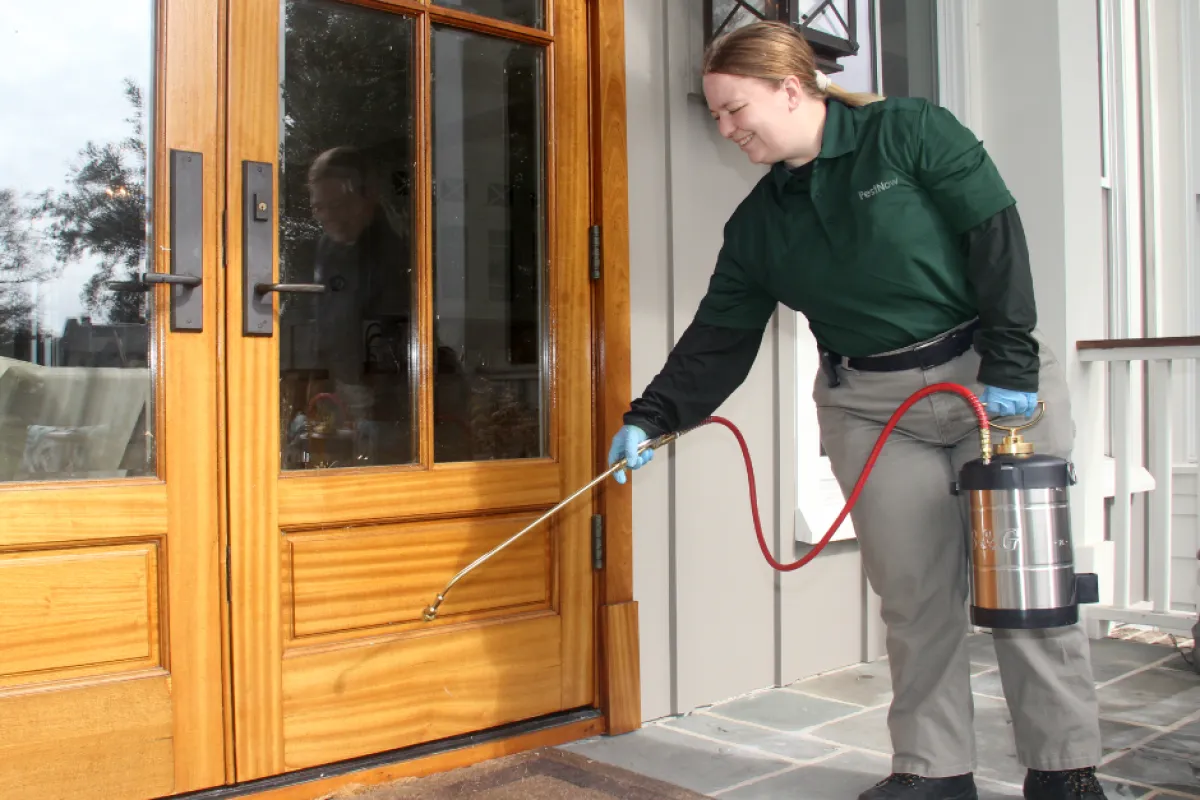Reliable Pest Control Coquitlam BC: Your Local Experts in Pest Management
Reliable Pest Control Coquitlam BC: Your Local Experts in Pest Management
Blog Article
Safe and Dependable Pest Control for Lasting Protection
Reliable insect monitoring needs a multifaceted approach that balances eco-friendly stability with the demand for efficient parasite suppression. The nuances of these methods might not be quickly clear, motivating a more detailed examination of the practices that can lead to sustainable pest control outcomes.
Understanding Bug Control Methods
Parasite control encompasses a range of techniques focused on managing and eliminating unwanted insects and rodents that can endanger both health and wellness and property. Comprehending these techniques is important for efficient bug management.
The main categories of parasite control approaches include mechanical, biological, and chemical techniques. Mechanical techniques entail physical obstacles and traps to stop bug entrance and capture unwanted species. Using displays on home windows or using sticky catches can dramatically minimize insect populations without presenting harmful substances - exterminator coquitlam.

Chemical parasite control is often the most acknowledged method, utilizing pesticides to eliminate pests. These chemicals can be effective but should be used with care to stay clear of negative effects on non-target species and the environment.
Benefits of Eco-Friendly Solutions
Just how can eco-friendly remedies change insect control methods? The fostering of eco-friendly insect control methods provides many advantages, significantly boosting the performance and safety of insect administration.

One more advantage is the favorable influence on neighborhood biodiversity. Environment-friendly services are made to target certain insects while maintaining beneficial bugs and wildlife, advertising a well balanced community. This approach lines up with the expanding consumer demand for lasting techniques, enhancing the online reputation of parasite control companies.
Integrated Parasite Administration Strategies
The execution of environmentally friendly options naturally leads to the fostering of Integrated Pest Administration (IPM) techniques, which further improve bug control efficacy. IPM is an alternative method that combines numerous tactics to manage pest populaces while decreasing ecological effect. This technique emphasizes using biological, social, mechanical, and chemical controls, ensuring a lasting and well balanced approach of pest administration.
One essential aspect of IPM is the detailed assessment of pest activity and ecological problems. By keeping an eye on insect populaces and recognizing their life cycles, specialists can implement targeted treatments that disrupt the insect's environment or lifecycle, lowering dependence on chemical pesticides. In addition, social methods such as crop rotation and environment control can considerably decrease bug establishment and reproduction.
An additional essential element is the use of biological control agents, such as advantageous pests or bacteria, which can naturally reduce pest populaces. When chemical applications are needed, IPM focuses on the usage of low-risk pesticides and applies them selectively, decreasing direct exposure to non-target organisms and human beings.
Including IPM strategies not just improves parasite control efficiency yet also promotes a safer community, aligning with the expanding need for sustainable techniques in insect management.
Safe Practices for House Owners
Understanding the significance of safe methods in pest control can empower property owners to effectively handle parasite issues while safeguarding their wellness and the environment. Implementing safe methods and preventative steps is critical in reducing direct exposure to dangerous chemicals.
Homeowners should first examine their setting for conditions that bring in pests, such as standing food, mess, and water waste. Routinely cleansing and sealing entry points can discourage insects from getting into the home. Using natural deterrents, such as necessary oils or diatomaceous planet, can provide effective options to chemical pesticides.
When chemical therapies are needed, home owners should go with items that are specifically labeled as safe for domestic use. It is vital to adhere to application guidelines carefully to avoid overexposure. Additionally, making use of targeted therapies in areas where insects are identified, instead than covering splashing, can substantially lower chemical usage.
Lastly, maintaining open interaction with bug control experts is important. Homeowners need to ask concerning the security of items utilized and request environment-friendly choices whenever possible. By adopting these secure techniques, house owners can develop a healthier living atmosphere while effectively taking care of insect problems.

Tips for Long-Term Security
Establishing a parasite administration strategy that stresses lasting security can significantly enhance the performance of the safe techniques formerly talked about. To attain this, house owners ought to apply routine examinations of their residential property, concentrating on concealed areas such as attics, cellars, and crawl spaces. Early discovery flying ants of pest activity is important in preventing invasions from taking hold.
These practices decrease attractants that draw bugs bug control right into the home. Securing entry points, such as fractures around windows and doors, can successfully block potential pest access.
Landscaping needs to also be taken into consideration; maintaining plants cut and maintaining a distance between plant life and the home decreases concealing areas for bugs. Using all-natural deterrents, such as necessary oils or diatomaceous earth, can further discourage problems without resorting to harsh chemicals.
Finally, working together with an expert pest control service for regular assessments can provide an added layer of security. These professionals can offer tailored suggestions and progressed treatments, guaranteeing that your home continues to be secured against parasites in the long-term.
Final Thought
In conclusion, risk-free and reputable bug control requires a complex technique that emphasizes eco-friendly approaches and integrated parasite management. By applying all-natural deterrents, conducting normal evaluations, and maintaining proper hygiene, homeowner can substantially decrease parasite populations while protecting helpful bugs and the environment. Partnership with specialist insect control services boosts the effectiveness of these approaches, go to this website making certain tailored remedies that give lasting security and satisfaction against future problems.
Reliable bug management needs a diverse technique that balances ecological stability with the requirement for reliable pest suppression. The fostering of environmentally friendly parasite control techniques provides many benefits, substantially boosting the effectiveness and security of parasite management.The implementation of green services naturally leads to the fostering of Integrated Pest Management (IPM) methods, which additionally boost parasite control effectiveness. exterminator coquitlam. By checking parasite populaces and identifying their life cycles, practitioners can execute targeted interventions that interrupt the insect's environment or lifecycle, lowering dependence on chemical pesticides.In verdict, secure and reliable bug control calls for a diverse method that highlights environment-friendly techniques and integrated parasite monitoring
Report this page